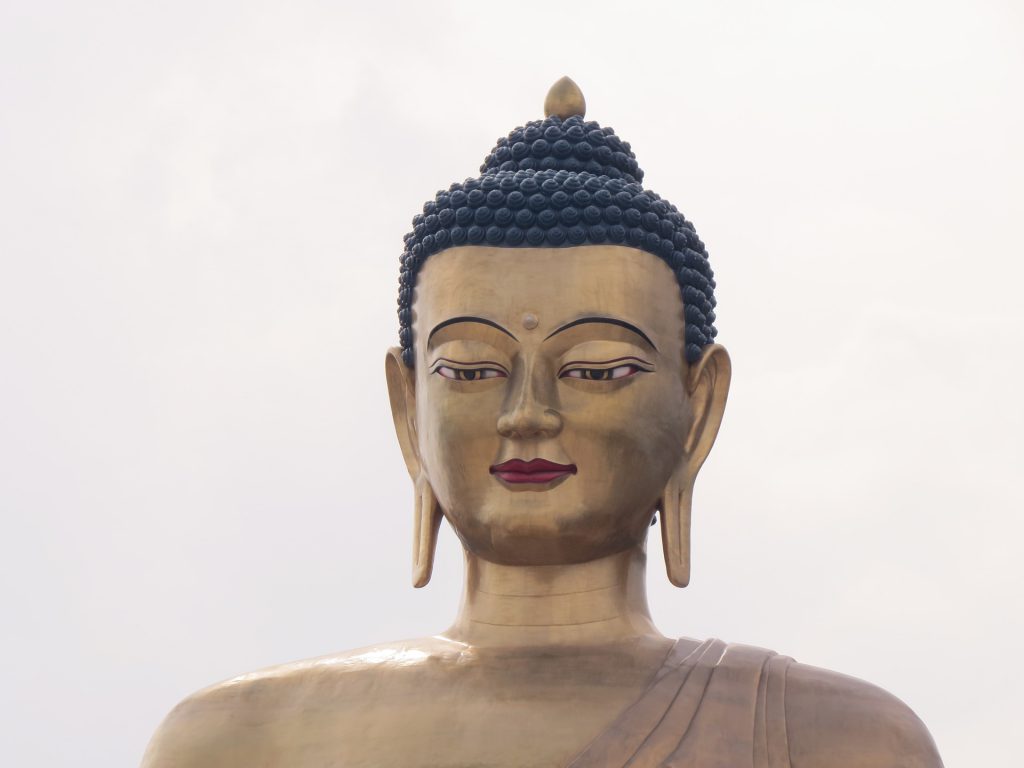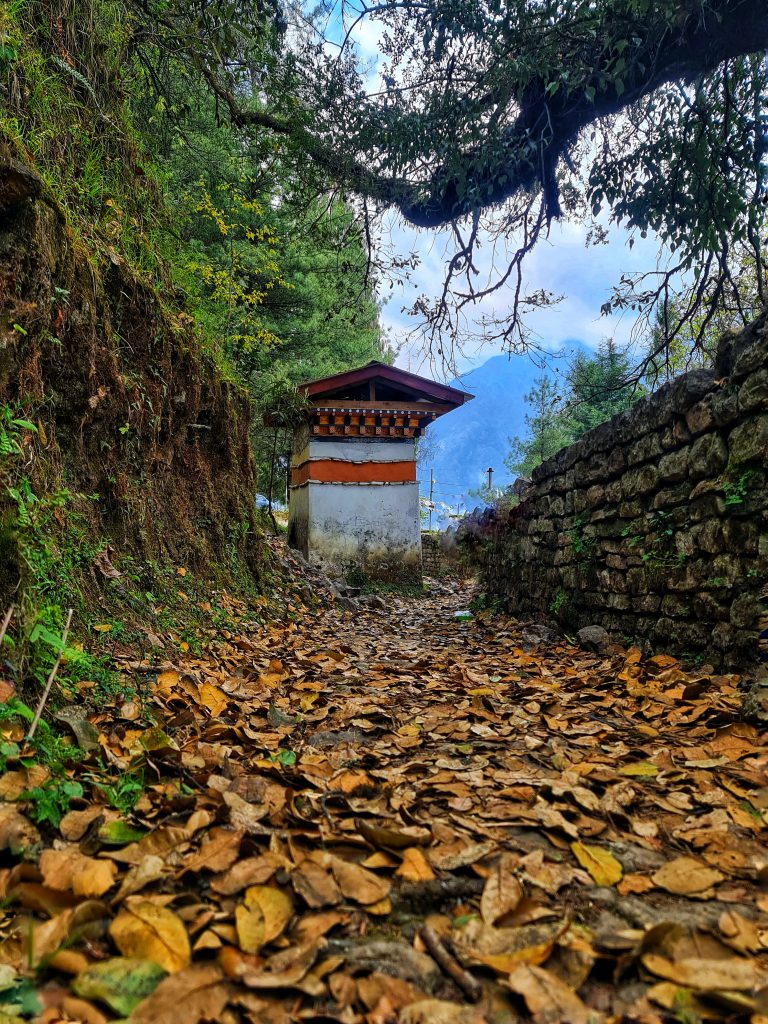

Bhutan is predominantly a Buddhist Country. Bhutan is regarded as one of the Buddhist country where Buddhism has flourished uninterrupted. The Drukpa kagyu and the Nyingma strand of Vajrayana Buddhism are widely followed in Bhutan. The influence of religion is highly visible in everyday life as it permeates every aspect of life in Bhutan. One can see a temple on almost every mountain ridge and thousand of colorful prayer flags and stupa on every mountain pass, prayer wheels and prayers carved on stones. There is profound worship of the Buddha, Guru Padmasambhava and numerous tantric deities. Worship and faith take many forms, from daily prayers before the shrine room at home to reciting prayers with the rosary or a prayer wheel.
Bhutanese visit lamas, make offerings to monasteries, help in the repair and maintenance of religious monument, participate in Wang (initiation) or lung (a verbal transmission by a great master), put up prayer flags, go on pilgrimages and take part in religious festivals. All these are believed to add merit to one's life.
Bhutanese consult astrologers and accordingly perform rituals on all important occasions such as birth, death, marriage, official functions, household ceremonies departure on a trip or when unwell. Bhutanese traditions are thus deeply steeped in its Buddhist heritage.
Buddhism has shaped the nation's history and played a vital part in the lives of its people, Bhutanese language and literature, arts and crafts, drama, music, ceremonies and events, architecture, and basic social and cultural values draw their essence from Buddhist values. Hinduism is practiced mostly in the southern regions, Buddhism and Hinduism co-exist peacefully. Some residue of Bon (animism and shamanism) still exists in some pockets of the country merely as a local culture.